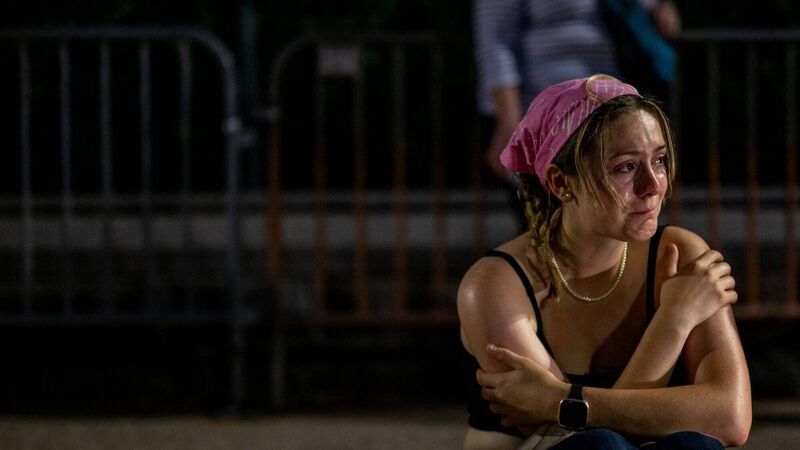What does a post-Roe world look like for reproductive rights?

Julia Scovil, 22, in front of the US Supreme Court, cries during a candlelight vigil denouncing the ending of federal abortion rights. Picture: Brandon Bell/Getty Images
The historic fall of Roe V Wade, the legislation in the US that permitted abortion, had been predicted since May, when Justice Samuel Alito's draft opinion was leaked. When the news came through, I was with a barrister friend who was quietly, but unmistakably, delighted. She pointed out that the original Roe judgment was equally an example of judicial activism. In 1973, the judges found a right to abortion in the US constitution. In 2022, an ideologically different supreme court (or at least its majority) was simply doing the same. Her point is partially correct. What is different here is that the court, in a brazen assertion of raw political power, has debunked almost 50 years of precedent and is taking away an established right. Doubtless, these trainspotter arguments are inconsequential to the women who, on Friday, were called by an abortion clinic in Little Rock, Arkansas — a state with a trigger law allowing an instant ban— to be told that the clinic was closing and that their appointments were cancelled. Other abortion clinics are now closing.
So, what does a post-Roe world look like for reproductive rights? A looming issue is what might happen to the right to contraception and the right to same-sex marriage. Like abortion, neither right is explicitly written in the US constitution. Instead, they rest on the unenumerated (unnamed) right to privacy and so are vulnerable to attack.













